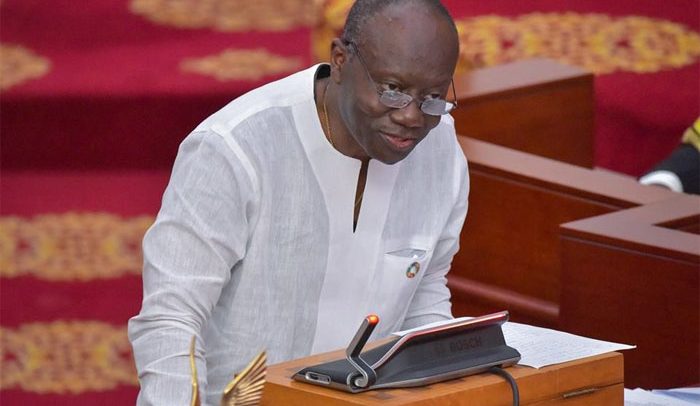THE FINANCE Ministry has postponed the mid-year budget review amid engagement with officials from the International Monetary Fund (IMF) for the economic programme for the country.
Finance Minister, Ken Ofori-Atta, who was scheduled to carry out the exercise today, will instead present the half year budget review on July 25, 2022 in line with the Public Financial Management Act.
Deputy Finance Minister, Abena Osei Asare, who disclosed this to journalists in Parliament yesterday, said it was the right thing at the moment for the officials of the ministry to focus entirely on the IMF meetings.
“We all know that we have started some engagements with the IMF. And the IMF were in town last week and are supposed to leave on Wednesday.
“Usually when they come, this very mission is for data collection and we need all the space and time to enable us to give them the data they are requesting for so that when they leave on Wednesday, and then we can start looking at the mid-year review,” she stated.
According to her, the ministry is done with the budget review report, adding that its officers, led by the Finance Minister, will look at it again before it is presented to Parliament on July 25.
Officials of the IMF arrived in the country on July 5, with the aim to assess Ghana’s macro fiscal data in order to make appropriate recommendations for a suitable programme for the country, after asking for its support.
President Akufo-Addo has been leading the Ghana team negotiating with the IMF officials with the hope to secure about US$2 billion to shore up the country’s reserves and build buffers to mitigate the hardships on Ghanaians.
The government, on July 1, 2022, announced that it had decided to engage the IMF to provide balance of payment support to Ghana as part of a broader effort to quicken the country’s build back, in the face of challenges induced by the COVID-19 pandemic and, recently, the Russia-Ukraine crisis.
Information Minister, Kojo Oppong Nkrumah, said the US$2 billion would help increase the country’s foreign reserves, and make available to the government liquidity to deal with the external debt servicing obligations as well as balance of payment support.
He revealed that there was US$1 billion from the international capital market which is ready for the country to access, but quickly added that this would require parliamentary approval.
For him, the support from the IMF alone would not be sufficient to deal with the current situation, intimating that there was the need for domestic resource mobilisation and an increase in production to address the challenges.
“There is no single bullet to deal with the economic challenges. The impact of the global crises [COVID-19 and Ukraine war] is so severe that some of the domestic measures introduced by the government, though had worked, were unable to stop the impact on Ghanaians,” the minister pinned.
Mr. Oppong Nkrumah mentioned that “tough times call for tough decisions.”
Meanwhile, a meeting between Parliament Finance Committee and the IMF began yesterday evening as part of the engagement to assess the country’s macro fiscal data.
BY Ernest Kofi Adu, Parliament House


